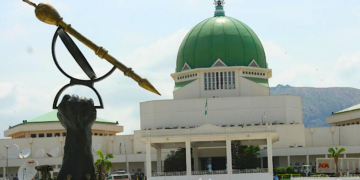Uncertainty has pervaded the 36 states of the federation and the federal capital territory (FCT) over the distribution of the N180 billion federal government palliatives to cushion the effects of removal of subsidy on Premium Motor Spirit (PMS), LEADERSHIP checks across the states has revealed.
It was learnt that the distribution process is going as smoothly as expected, with a number of state governments setting up committees to decide how to share the limited food stuffs to a large and expecting population.
The committees are however said to be slow in getting the palliatives across to the people, while states like Bauchi, Zamfara, Adamawa, Ebonyi, Imo and Bayelsa are yet to distribute a single grain of food items to the people.
The National Economic Council (NEC) had on August 17, 2023 said that federal government had approved N5 billion as subsidy removal palliatives to each of the 36 states of the federation for the procurement of grains as well as five trucks of rice and 40,000 bags of maize for each of the states.
So far, a majority of the states have acknowledged the receipt of N2 billion from the federal government, with some receiving all of the five trucks of rice, while others say they have only received two or three trucks.
A representative of the Civil Society Organisations (CSO) in the 18-member committee set up by Governor Umo Eno of Akwa Ibom, said members of the committee “are still working to get a transparent and fair strategy of disbursing the relief materials equitably to reach the rural and the urban poor.
“That is one of the causes of the delay in submitting the report to the state government,” the source added.
And while all the states have no shortage of a poor and vulnerable population, some governors are targeting disabled and displaced persons. In other states, it is precisely the disabled that are complaining of being overlooked.
In Kaduna, the state government said the palliative funds will be utilised in three phases, as the first phase will be devoted to distribution of food items to households.
Governor Uba Sani who disclosed this during a media briefing said the second phase will take care of transportation and assistance to small holder farmers, Micro, Small and Medium Scale enterprises.
Sani said the third phase will be devoted to the resuscitation of the locomotive train from Zaria to Kaduna, and Sabon Tasha to Kafanchan, all in a bid to ease transportation for citizens.
The governor explained that the first phase of implementation, the distribution of palliatives in Kaduna Kaduna State will target 1,050,000 individuals (equivalent to about 210,000 Households).
He noted: “The families headed by People with Disabilities, Widows, and the Elderly will be considered first. Other Poor and Vulnerable Households, Orphanages and Internally Displaced Persons Camps (where applicable) will also be given special attention. 43, 000 bags of 50kg rice will be procured for distribution.
“We are committed to the effective implementation of measures lined up in the three phases. For the first Phase, the State Government has put all necessary machinery in place to ensure that the purchase and distribution of the palliatives is hitchfree. We shall also closely monitor the implementation.
“We call on our citizens to give maximum support and cooperation to the Implementation Committee to ensure a seamless exercise. The full weight of the law will be visited on anyone who attempts to divert the palliatives meant for the people or tries to disrupt the exercise.”
In Jigawa, the state government has already commenced the distribution of palliatives across all the 27 local government areas of the state.
After receiving five trucks of rice from the federal government, the state government bought additional five trucks and distributed it, with each local government getting 200 bags of 50kg which translated to less than one bag per community.
However the state government had in its executive council meeting approved the selection of 5,000 women for empowerment and 1,000 youth for special grant.
The distribution of the palliatives has generated a lot of rancour and skirmishes, as the palliatives items were very little for a state where the poverty rate is extreme among citizens.
Chairman of Joint Association of People With Disability, Jigawa State chapter, Hon Adamu Shuaibu Jigawar Tsada, had decried marginalisation of his members in the distribution of the palliatives.
He said the state government directed local government chairmen to give consideration to disabled persons but only two of the 27 local governments complied.
In Adamawa, as residents await the arrival of palliative support intervention from the federal government, acting governor of the state, Prof Kaletapwa Farauta, has inaugurated a 20-member committee to ensure a hitch free distribution of food and non-food items.
Also, the state government had approved procurement of more grain for distribution to the people.
Farauta urged the committee to work out modalities for the transportation of the palliatives from the source to the distribution points
She said the committee is to monitor and liaise with relevant stakeholders and community agents in ensuring equity distribution to the intended beneficiaries across the 21 local government areas.
Chairman of the committee, Awwal Tukur, said 3,200 metric tonnes of maize palliative from the federal government would be sold at 50 per cent subsidised rate to the people.
Tukur said 5 trucks of rice could be distributed free as Red Cross and UN agencies are incorporated as observers.
Executive secretary of the State Emergency Management Agency (ADSEMA), Dr Mohammed Sulaiman, will serve as the secretary of the committee.
The committee has heads of various security agencies in the state as members.
Also, LEADERSHIP Sunday inquiries indicated that Abia State has received N2billion and 3,000 bags of rice of 50 kilogrammes as its allocation of the palliatives.
At the kick-off of allocation of the rice in the capital, Umuahia, the chairman of the distribution committee, the Rev Fr Christian Anokwuru, said the target is the poor and vulnerable.
The special adviser to the governor on policies and intervention, therefore, directed that each of the 184 wards in the state be allocated 14 bags each.
In his reaction, a representative of the state chapter of the Nigeria Labour Congress, Okoro Ogbonnaya, expressed displeasure with the number of bags, adding that there were not enough.
However, his counterpart in the Nigeria Union of Pensioners, Uma Kalu, appealing for additional supply, noted with satisfaction the mode of the distribution.
On its part, the Katsina State government said it purchased 40,000 bags of rice with the N2 billion soft loan received from the federal government and distributed to its residents across the 34 local government areas of the state.
The State commissioner for Information and Culture, Bala Salisu Zango, explained how the state government utilised the palliative fund for beneficiaries, stating that the committee set up by the government had been the one in charge of all the distribution.
He added that the committee is made up of traditional and religious leaders, local government chairmen, community leaders and the lawmaker representing a local government council.
“The federal government of Nigeria directed the Central Bank to release the funds to States as a soft loan, which the federal government will repay 52 percent and states 48 percent over 12 months.
“Katsina State government under the leadership of Malam Dikko Umaru Radda has already utilised the N2 billion received and purchased 40,000 bags of rice to be distributed to each polling unit in the state”, he said
He added that the state government has also directed all the 34 local government councils in the state to procure and distribute maize to its citizens free of charge to cushion the effects of fuel subsidy removal.
He urged the people to be calm and rest assured that once the next tranche of funds is received by the federal government, the state government will also provide the maize and distribute it accordingly.
However, there is controversy surrounding the distribution of maize in the state by some beneficiaries who complained that the maize and grains distributed were rotten and inadequate to serve the purpose.
But the chairman of the Association of Local Government of Nigeria (ALGON), Bello Lawal, has since denied that the maize was not part of the one they shared, adding that what they gave out to the people was of good quality.





